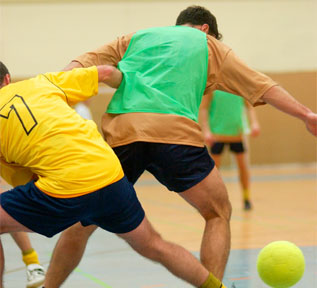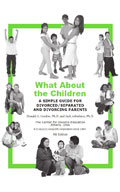
By Donald A. Gordon Ph.D. and Jack Arbuthnot Ph.D.
Most parents ask themselves some hard questions when they split up. Parents wonder what the break-up will do to their children. Will the children understand what’s going on? How will they react to each parent as the family changes? Will they be OK with a new step-parent? Will they be OK if there are step-siblings? Will their grades in school suffer? Will they draw away from their friends? Will they suffer some emotional harm forever? Does the children’s age make a difference? Is it different for boys than for girls?
For most parents, the important thing is that their children survive the split-up. They want their children to grow up to be healthy adults. Many children do, of course. Some are even better off in many ways; for some children, a break-up is better than staying in an unhappy family. A separation can also be better than being in a home where parents argue so much.
Divorce Effects on Teenagers
Teenagers – 13-18 year olds — have an edge over younger children during divorce: they have more advanced thinking skills, and they also have a larger social group, which gives them more support to deal with the family break-up. Their main social outlet is the peer group, not the family. As a result, parents may not notice that the child has problems.
Parental conflict affects teenage boys and girls differently from young children. Girls report more angry feelings, and boys report more sad feelings. Such feelings may reduce a parents’ influence over their children. The adolescent probably will rely more and more on peers, or he/she may become socially isolated.
Loss of a relationship with a parent causes problems for a teenager. This major source of help and direction is lost at the worst time. Break-ups cause personal and social stress; losing the support of a parent at this age can cause continuing problems. For many teens, inconsistent discipline and lack of parental controls is upsetting. This is a time when teens begin to experiment with special relationships themselves. There may be an absence of healthy role models by the parents. Teens may be hurt by the bad examples set by their parents, or they may turn to poor role models seen in movies or on TV. They may follow models set by their peer group, which is much stronger when parents are not around or involved.
A family with only one parent has many needs, so teenagers are forced to grow up more quickly. They handle more family responsibility: for example, some teenagers must help with younger siblings, or they may have to care for an unstable parent. A third of them will become more active in family life – but another third will become removed.
Many teens will act out their anger and frustration. It can be difficult to process their parents’ divorce and children may resort to engaging in wrong behavior, hanging out with peers who break laws, drinking or taking drugs, or engaging in risky sexual behavior (girls, especially, may take such risks). This is a stormy period of growing up, and the lack of care by two parents will make matters worse because the guidance that adolescents need is not there. Problem behavior is more likely if the parents split before the child was ten.
Careful control and communication can reduce problems. Proper control by both parents will lower the chance for bad behavior and lessen the chance of drug abuse and other teen problems.
Some teens respond in a mature way, vowing to do better than their parents. But many will have concerns about their own intimate relationships; they will worry about sex and marriage well into adulthood. They may marry early just to get away from home or because they’re looking for someone to love them. They also have more break-ups than normal because they often make poor choices for partners and they have no model of how to settle disputes and persevere in a relationship.
Adolescents have thinking skills that allow them to see how systems work – such as families, laws, governments, and other groups. Young teenagers still view these systems in a simple and idealistic way, so you’ll see them react with anger and outrage when things don’t work right.
Young adolescents will feel moral anger over their lack of power and control. They are more likely to feel helpless in their situation; they’ll be upset and think no one respects them. They’ll think no one cares (not the parents, the court, or “the system”) and that their feelings do not count. They may feel that parents expect too much of them, and they often refuse to take part in these “unfair” hopes and expectations. There will be drama and displays of moral anger.
As teens grow away from depending on family, help them focus more on time with their friends, school, and hobbies. Guide them to other interests, and inspire them to achieve their own personal goals. As their thinking skills grow, they can start to filter through their views of parents. They will understand that we are all a mix of good and bad qualities: we all have traits to admire and we all have flaws. Thus, they should be able to develop a new viewpoint of each parent – to see them as individuals who have admirable qualities as well as traits they don’t like. But that is just a fact of life. You, as a parent, can accept your child’s views and anger and still guide their beliefs about the causes of the problems.

Related Articles
For more information about children’s issues during separation and divorce, visit www.DivorceMagazine.com – you’ll find lots of informative articles on the subject.
See also:
How Divorce Affects Preschoolers
How Divorce Affects Young Children
How Divorce Affects Preteens







